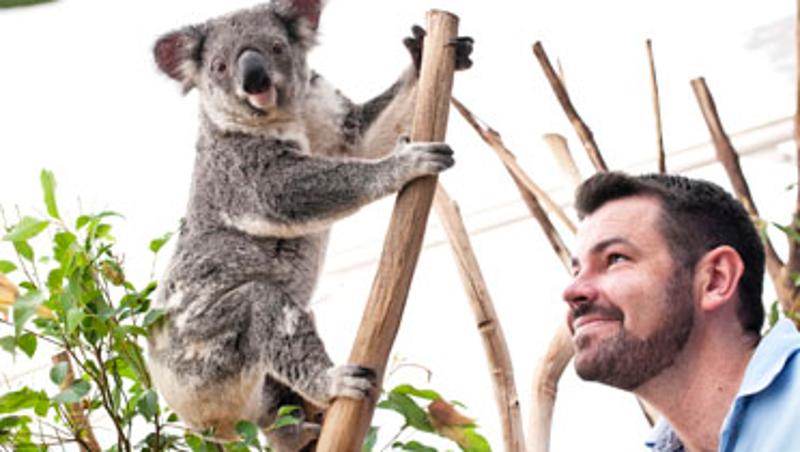
A research project helping to stave off deadly infections in koalas is one of several QUT research projects to rake in one of this year's Tall Poppy awards.
Dr Adam Polkinghorne, one of the key researchers in the successful QUT Koala Genome Mapping project, said virtually nothing was known about the immune system of the koala.
"Mapping the genome is helping us to unravel the biological information of the koala so we can better understand why their immune system works the way it does," he said.
"The koala population is under threat from a number of diseases including Chlamydia and Koala Retrovirus so being able to single out the genes that we know are important in controlling these infections will help us to be able to better treat them."
Dr Wilhelmina Huston was recognised for her research on better understanding how Chlamydia causes infertility in women.
Dr Huston's recently developed blood test that effectively diagnoses a woman with chlamydial infertility by highlighting the markers which cause the aggressive immune response in some women and not others. The test helps fast track procedures like IVF, without the need for invasive or painful diagnostic testing.
Other QUT winners:
Dr Eliza Whiteside, whose research is helping us better understand the interplay between the genetic and hormonal drivers of cancer so that individuals who are genetically predisposed to cancer can decrease their risk of developing the disease. Dr Whiteside is also investigating the effects of lifestyle factors such as exercise, diet and stress on the quality of life of cancer survivors.
Associate Professor Mia Woodruff, whose research group has developed 3D templates to assist bone-defect repair. Tissue-engineered scaffolds have been made in the lab to mimic and heal bone. The scaffold slowly dissolves as the new bone-tissue forms, eventually leading to a healed defect, and no scaffold.
Associate Professor Marcus Foth, who heads the Urban Informatics Research Lab at QUT, develops practical approaches to complex urban problems employing human-computer interaction to build engagement around emerging issues facing our cities such as: urban planning, environmental sustainability, food futures, transport, collaboration and co-working spaces.
The Tall Poppy Awards recognise the state's best young scientists, who combine world-class research with a passionate commitment to communicating science.
The awards, which were held last night, are an initiative of the Australian Institute of Policy and Science and the Tall Poppy Campaign.
RELATED ARTICLES
Cancer researcher and survivor runs for a cure
World-first research will save koalas
Treatment to fight silent fertility killer
Grey Street Xchange 2.0 launched
Media contact: Alita Pashley, QUT media officer, 07 3138 1841 or alita.pashley@qut.edu.au


